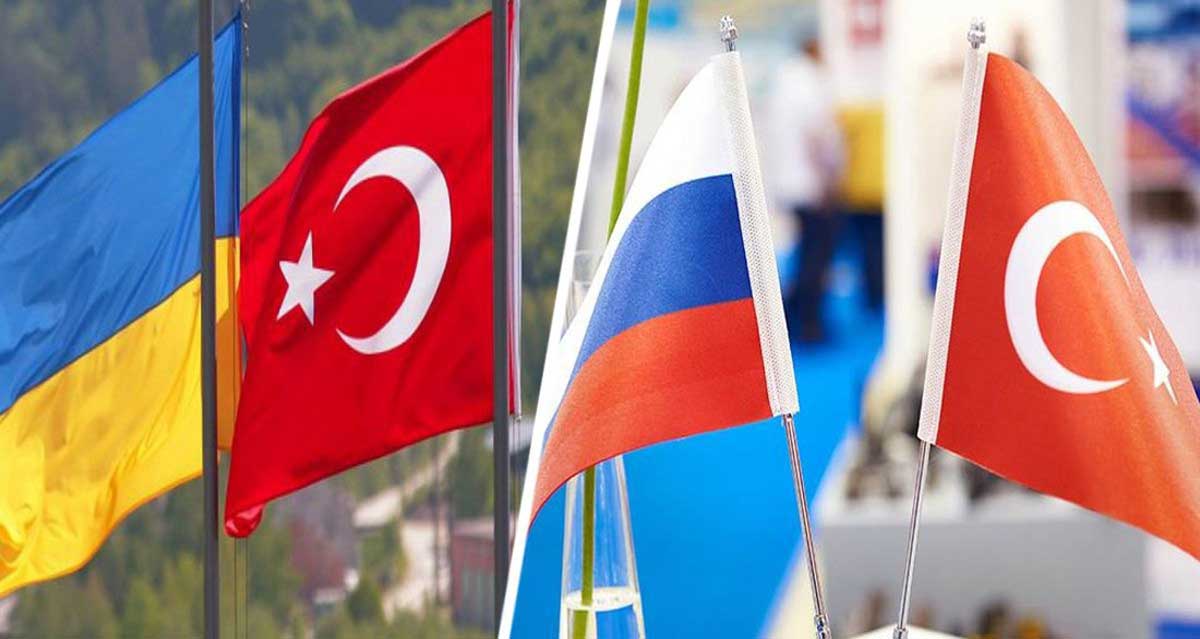Turkey “in desperation” is following the escalating Russian-Ukrainian tension: this topic has increasingly become a “red thread” through the latest publications of the Turkish media, both tourist and official. Turkey, which has fallen into a severe financial and economic crisis, is in dire need of currency, the main source of which is tourists, primarily Russian and Ukrainian. It is clear to Turkish tourism experts – unlike politicians – that any transition of the conflict into a “hot” phase will deprive Turkey of these tourists – if not tourism at all.
“If Russia enters into a military conflict with Ukraine, then Turkey, not Europe, will suffer the main losses,” Burak Pehlivan, president of the Turkish-Ukrainian Business Association, assured the Turkish newspaper Dünya. First of all, he recalled that at least 30% of tourists coming to Turkey come from Russia and Ukraine. Moreover, according to travel experts, this volume is actually even higher. In addition, these two countries provide Turkey with half of all foreign projects, and last year Turkish contractors received projects worth $ 29.3 billion – and Ukraine and Russia provided half of this amount. Also, Russia and Ukraine provide 40% of Turkish imports. “In a sense, the war will negatively affect Turkey in almost all areas, from tourism to food,” said the Turkish businessman.
At the same time, Mr. Pehlivan did not forget to emphasize that “Ukraine has become a lifeline for Turkish tourism at a time when Russia imposed a ban on flights.” “Ukraine was the only country that saw an increase in the number of tourists to Turkey during the pandemic. In 2021, more than 2 million Ukrainian tourists visited Turkey. It was Ukrainian tourists who saved many hotels and tourist sites and ensured that thousands of workers would not lose their jobs,” he said. At the same time, the contribution of Russian tourists is undoubtedly more significant: if not for Russian tourists, then three-quarters of Antalya hotels would not have opened in 2020 and 2021.
“If Bayraktar drones result in significant military spending for Russia in a possible conflict with Ukraine, it will strain Turkey’s relations with Moscow, disrupt energy supplies and tourism,” said Timothy Ash, senior strategist at Bluebay Asset Management in London. No country provides more tourists to Turkey than Russia, and in 2021, Russians made up 20% of the total number of foreign holidaymakers in Turkey’s resorts. Ukraine, at the same time, takes the third place. At the same time, in 2020, Turkey imported almost 34% of its gas from Russia, its main supplier, which also increases Turkey’s risks.
The Russian-Ukrainian theme was also supported by Recep Yavuz, president of the working group on tourism of the Antalya City Council. On his part, even a proposal was made to hold a trilateral Russia-Ukraine-Turkey summit in Turkey in order to prevent a conflict. “Turkey, uniting the two peoples during the summer holidays, can make a great contribution to the elimination of this crisis by bringing together the heads of state of the two countries in a peaceful atmosphere,” Recep Yavuz assured. He stressed that in Antalya every year “hundreds of thousands of Ukrainian and Russian guests sunbathe side by side”, and both Russian and Ukrainian tourists keep peace in Antalya. Those. conflicts on ethnic grounds have not yet happened – neither among tourists, nor among employees of host companies, hotels, etc., because both Russians and Ukrainians work in Turkey. Undoubtedly, if the situation continues to escalate, hotels are also afraid of a “Ukrainian-Russian” conflict on the territory of individual hotels, where tourists from Russia and Ukraine will intersect.
At the same time, commentators are transparently hinting that Turkey has nowhere to go – in the event of any transition of the conflict into a hot phase, at least the Ukrainian sky will be automatically “closed” by Russia by introducing a no-fly zone. And this means that the Ukrainian tourist flow will be completely reset.
However, while the “guns are silent”, Turkish experts are discussing another topical issue related to the same conflict. Even if Russian-Ukrainian relations do not reach the hot phase, will Russian tourists, and mainly their money, suffer from the financial war that is already underway. After all, as Turkish economists comment, “growing tension causes fluctuations in the exchange rate of the Russian ruble.” They cite the opinion of several Russian financiers: if optimists, in particular, Renaissance Capital analyst Sofia Donets, believe that the rate of 80 rubles per dollar is the “ceiling”, then pessimists, for example, Evgeny Shatov from Capital Lab are sure that in the case further aggravation of the crisis between Russia and NATO around Ukraine, the dollar may exceed the limit of 100 rubles. That without any “hot phases” of the conflict will reduce the Russian tourist flow to Turkey to “anxious” volumes.

